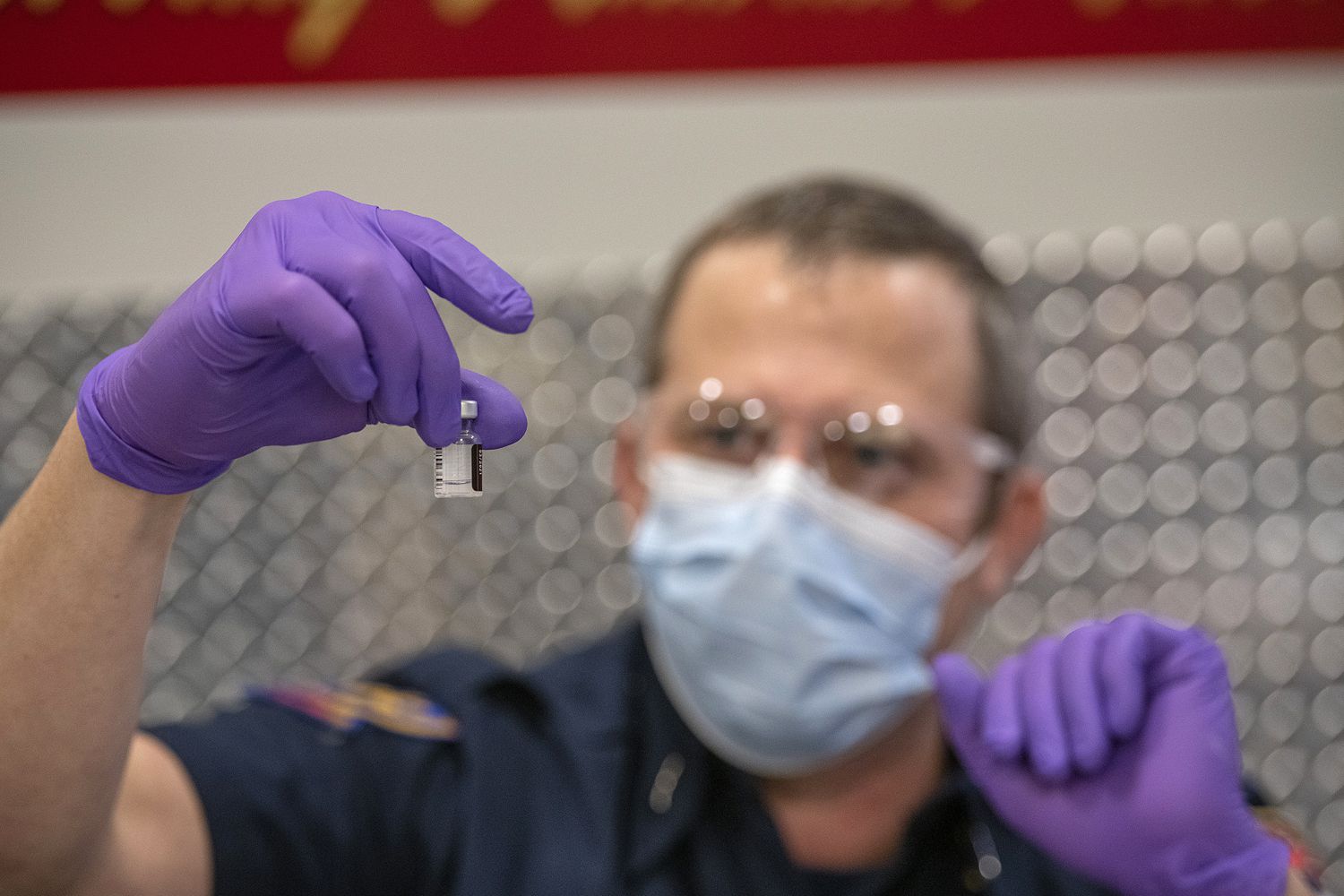
Alaska is leading the U.S. in the distribution of the COVID-19 vaccine, with anyone age 16 or older that lives or works in the state now able to get vaccinated.
"This historic step is yet another nationwide first for Alaska, but it should come as no surprise," Gov. Mike Dunleavy said in a statement on Tuesday. "Since day one, your response to the pandemic has been hands-down the best in the nation. I couldn't be prouder of Alaska's response."
There are currently three COVID vaccines that have been FDA approved: Pfizer and Moderna, which each require two doses, and Johnson & Johnson, a single-dose vaccine that is currently being rolled out. Pfizer is available to anyone 16 and older in Alaska, while Moderna and J & J are available to anyone 18 and older in the state.
According to Alaska's vaccine monitoring dashboard, a total of 290,624 doses have been administered in the state as of Wednesday morning, with 23.6% of the population vaccinated with one dose and 16.4% vaccinated with both.
"A healthy community means a healthy economy," Dunleavy said. "With widespread vaccinations available to all Alaskans who live or work here, we will no doubt see our economy grow and our businesses thrive."

Alaska began administering vaccine doses in December to health care workers and residents in nursing homes only. The state then expanded eligibility in phases over the following months.
According to data from Johns Hopkins University, Alaska ranks 46th in the number of COVID-19 cases in all 50 states. As of Wednesday, the state has had over 59,000 confirmed cases and 305 deaths.
Want to get the biggest stories from PEOPLE every weekday? Subscribe to our new podcast, PEOPLE Every Day, to get the essential celebrity, entertainment and human interest news stories Monday through Friday.

Alaska's announcement comes just one day after the Centers for Disease Control and Prevention (CDC) released guidelines for post-vaccination life.
Per the guidelines, once people have received their full COVID-19 vaccine doses and waited two weeks to build an immune response, they can safely gather indoors, unmasked and without distancing, with other fully vaccinated people, or unvaccinated people who have a low risk of severe disease.
The new guidelines mean that families can visit grandparents and elderly adults who have been fully vaccinated without distancing or wearing a mask, as long as they are not at a high risk of severe COVID-19 illness. However, they should keep visits to a single household.
Fully vaccinated people, though, should still wear masks out in public, distance from others and keep up COVID health precautions, the CDC said, to protect unvaccinated people at a high risk of severe illness in case they can asymptomatically transmit the virus.
As information about the coronavirus pandemic rapidly changes, PEOPLE is committed to providing the most recent data in our coverage. Some of the information in this story may have changed after publication. For the latest on COVID-19, readers are encouraged to use online resources from CDC, WHO, and local public health departments. To help provide doctors and nurses on the front lines with life-saving medical resources, donate to Direct Relief here.
Source: Read Full Article
